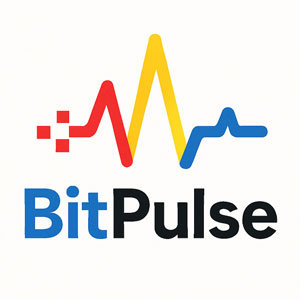The Expanding Role of Blockchain Beyond Cryptocurrency

When blockchain technology first entered the public consciousness, it was synonymous with Bitcoin and digital currencies. Many dismissed it as a niche solution for an emerging financial trend. Today, that perception has changed dramatically. Blockchain is no longer confined to cryptocurrency. It is evolving into a powerful tool for transparency, security, and trust across a range of industries.
Understanding the Core of Blockchain
At its simplest, blockchain is a decentralized ledger system that records transactions across multiple computers in a way that is secure, transparent, and nearly impossible to alter. Unlike traditional databases controlled by a single authority, blockchain operates on a peer-to-peer network. Every transaction is verified through consensus mechanisms and added as a block to a chain of previous records, forming an immutable history.
This structure provides two major benefits. First, it ensures integrity since tampering with one block would require altering every other block on the chain. Second, it removes the need for intermediaries, reducing costs and increasing efficiency in systems that traditionally rely on central authorities.
Blockchain in Supply Chain Management
One of the most promising applications of blockchain is in supply chain management. Companies across industries struggle with tracking the origin and movement of goods. Counterfeiting and lack of transparency cost billions each year. Blockchain can solve these problems by providing a secure, verifiable record of every step in the supply chain.
For example, in the food industry, blockchain enables retailers and consumers to trace products from farm to shelf. If a contamination issue occurs, companies can quickly identify the source and remove affected items, reducing waste and protecting public health.
Healthcare and Secure Data Sharing
Healthcare systems face the challenge of maintaining accurate and secure patient records. Data breaches not only compromise privacy but can also put lives at risk. Blockchain technology provides a way to store patient data in a tamper-resistant format while allowing authorized access when needed.
With blockchain, patients could have greater control over their medical information, granting temporary access to healthcare providers without relying on centralized databases that are vulnerable to hacking. This decentralized model ensures security and improves interoperability across healthcare systems.
Revolutionizing Digital Identity
Identity theft remains one of the most common forms of cybercrime. Current identity systems are fragmented, requiring users to maintain multiple accounts and credentials. Blockchain-based digital identity systems offer a solution by giving individuals control over their identity data. Users could share only the information necessary for a specific transaction, reducing exposure and protecting privacy.
This concept of self-sovereign identity could transform how we interact online, making verification faster, more secure, and less intrusive.
Smart Contracts and Automation
Smart contracts are another groundbreaking feature of blockchain. These self-executing agreements run on code and automatically enforce terms when predefined conditions are met. This eliminates the need for intermediaries such as lawyers or brokers, reducing costs and speeding up transactions.
Industries such as real estate, insurance, and finance are already exploring smart contracts to streamline processes. For instance, in real estate, a smart contract could handle everything from verifying property ownership to transferring funds, completing the sale in minutes instead of weeks.
Challenges and Future Outlook
Despite its potential, blockchain is not without challenges. Scalability remains a significant issue, as most blockchain networks struggle to handle high transaction volumes efficiently. Energy consumption is another concern, particularly for blockchains that rely on proof-of-work consensus mechanisms. Efforts to adopt greener alternatives such as proof-of-stake are gaining traction but require widespread adoption.
Regulation is another area of uncertainty. Governments worldwide are grappling with how to classify and govern blockchain-based systems without stifling innovation. Striking the right balance will determine how quickly the technology matures.
A Technology for the Next Decade
Blockchain is more than a technological trend. It represents a fundamental shift in how we manage data, trust, and security. While the early years were dominated by cryptocurrency, the next decade will see blockchain powering solutions in finance, healthcare, logistics, and identity management. Its ability to create transparency and eliminate intermediaries positions it as a cornerstone of the digital future.
At BitPulse, we see blockchain as part of a broader movement toward decentralization and user empowerment. Its success will depend on addressing technical challenges and establishing ethical, regulatory frameworks. One thing is clear: the impact of blockchain will extend far beyond digital currency. It is reshaping the foundation of the connected world.
